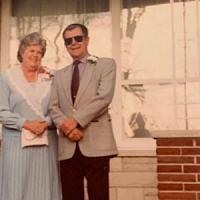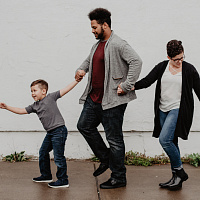Helping Children Cope with Grief

"Helping a child cope with loss is perhaps one of the most important roles an adult can play. In effect, you are helping that child develop skills that can last a lifetime."
The death of a loved one is always difficult. For children, the death of a loved one can affect their sense of security. Like adults, children express loss by grieving. Yet children may not demonstrate the grief in the same manner as adults. Pre-schoolers usually see death as temporary; between the ages of 5 and 9, children begin to experience grief more like adults. NMHA provides the following information for parents, educators and others who may help a child overcome loss.
Signs of Grieving in Children and Adolescents
- Sadness
- Profound emotional reactions-anxiety attacks, chronic fatigue, anger, thoughts of suicide
- Feelings of anger, denial, shock and confusion
- Extended depression with a loss of interest in daily activities and events
- Boisterous play
- Inability to sleep, nightmares, loss of appetite, prolonged fear of being alone
- Withdrawal from friends
- Sharp drop in school performance or refusal to attend school
- Excessively imitating or asking questions about the deceased; repeated statements of wanting to join the deceased; inventing games about dying
- Acting much younger for an extended period or reverting to earlier behaviors (e.g., bedwetting, baby talk, thumb-sucking)
- Loss of concentration and/or irritability
- Humiliation or guilt over personal failure to prevent loss of life
- Frequent physical complaints such as stomachaches and headaches
Helping Children and Adolescents Grieve
Long-term denial of death or avoidance of grief is unhealthy for children and may resurface later with more severe problems. Here is a list of things you can do to help a child overcome loss.
- Children are concrete in their thinking. To lessen confusion, avoid expressions such as quot;passed on" or "went to sleep." Answer their questions about death simply and honestly. Only offer details that they can absorb. Don't overload them with information.
- Children can be fearful about death and the future. Don't offer false comfort. Give them a chance to talk about their fears and validate their feelings. Offer a simple expression of sorrow and take time to listen.
- Children are repetitive in their grief. Respond patiently to their uncertainty and concerns. It can take a long time to recover from a loss.
- Children are physical in their grief. Watch their bodies, understand and support their play and actions as their "language" of grief. Offer reassurance.
- Children grieve cyclically. Expect their grief to revisit in cycles throughout their childhood or adolescence. A strong reminder, such as the anniversary of a death, may reawaken grief. Make yourself available to talk.
- Children need choices. Whenever possible, offer choices in what they do or don't do to memorialize the deceased and ways to express their feelings about the death.
- Children grieve as part of a family. Expect children to mourn the deceased and the environment that existed before the death. Children may grieve the "changed" behavior of family and friends. Keep regular routines as much as possible.



























